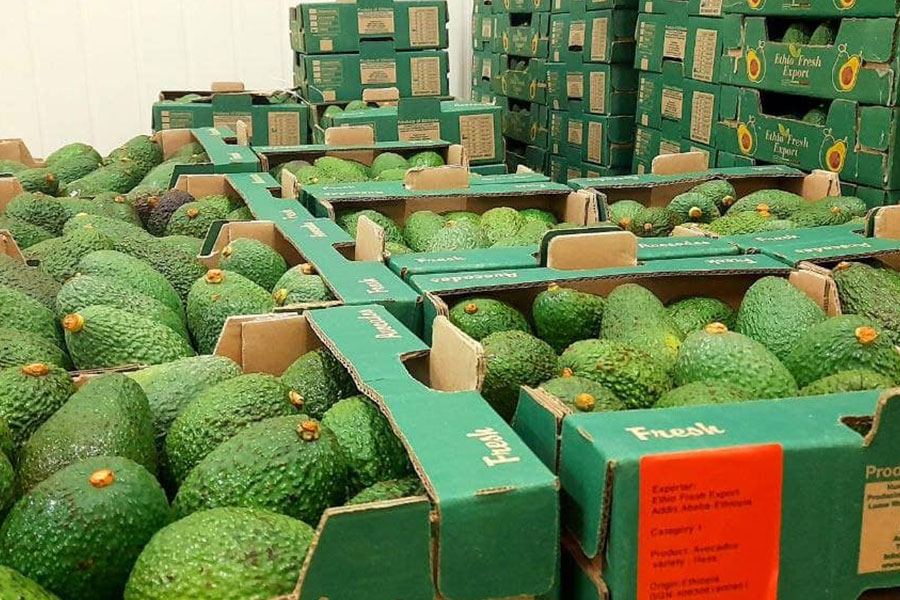
Featured | Oct 30,2021
Jul 22 , 2023
By BEMNET TAFESSE ( FORTUNE STAFF WRITER. )
Frustration over prolonged fertiliser shortages has recently hit a fever pitch, with farmers resorting to raiding union warehouses in a small town bordering the Amhara and Oromia regional states last week. The quota system, established by local officials to deal with the scarcity, appears to have only exacerbated the situation, failing to appease farmers preparing for the rainy season, a crucial time for ploughing.
According to Tesfaye Menberu, head of the agricultural input supply and distribution at Arerti Wereda, in the Amhara Regional State, the quota system was adopted due to a severe drop in supply. Federal authorities blame a forex crunch for failing to place orders for fertiliser procurements in November. This system, predicated on plot size, has been further complicated by restrictions on purchases from neighbouring zones in the Oromia Regional State.
May marks the start of farming when plots are primed for the upcoming rainy season. Yet, in this wereda, fertiliser supply to over 25,000 households fell short of half the annual demand of 211,000qtl, as submitted by the regional state's Bureau in its December planning.
Discontent boiled over in Keticha, a town in the Minjar Zone, where local farmers took matters into their own hands, seizing over 3,000qtl NPS, NPS Borone, and UREA stocks from the Keticha and Arerti cooperative unions.
"We've forewarned the cooperatives about the possibility of security concerns," Tesfaye said.
Local law enforcement in Arerti Wereda had anticipated this situation, acknowledging the crucial dependency of farmers on fertiliser.
Gashaw Menzir, the chief sergeant of the Arerti Wereda Peace & Security Bureau, cited the delay in fertiliser distributions as the cause for the rising discontent, particularly among farmers in lowland areas who begin preparing their plots earlier than those in highlands. Gashaw told Fortune that this was not an impromptu protest; vehicles and armed individuals were present during the protest, indicating premeditation. However, he did not disclose if anyone had been detained.
The cooperative union targeted during this storm already dealt with a significant fertiliser shortfall this year, with only 17,000qtl available to cover a third of the demand since mid-February. The Arerti Farmers Cooperative Union, founded during the Dergue regime, has a membership of 5,000 farmers.
Seble Mulgeta, head of the Union, argued the quota allocations were last-resort measures and that the Union lacked the necessary resources to deal with the situation.
"There is nothing left," Seble told Fortune.
While the cooperative union is making attempts to source additional fertiliser from the regional state's reserve stock, success seems unlikely given the countrywide scarcity.
Executives of the Ethiopian Agricultural Business Corporation (EABC), a state-owned enterprise responsible for procuring and distributing fertilisers, have been struggling in the face of global inflation and supply chain disruptions fueled by the ongoing war between Russia and Ukraine. Despite the Enterprise's allocation of nearly one billion dollars for procuring 1.5 million tonnes this year, the amount to be imported saw a significant decline of 300,000tn, despite a substantial budget mobilisation spike of 360 million dollars.
Supply chain management experts have pointed out that these incidents underscore the lack of coordination in the value chain, ultimately burdens the farmers.
Matiwos Ensermu (PhD), an associate professor in supply chain management at Addis Abeba University, has emphasized the importance of maintaining comprehensive data through digital traces to address largely ignored periodic variations after the fertilizers reach the unions' gate. He believes fertiliser delivery must be adequately managed because of the substantial investment in procuring it.
"Data should be the primary asset," he remarked.
Members of the cooperative unions, who have paid for their fertiliser through the quota system, have yet to receive it, heightening fears over a potential reduction in production.
One such member, Derese Bekele, is anxious about his yield for this farming season. Despite needing six quintals of fertiliser to farm a 3.5hct yielding over 20qtl of teff under favourable conditions, he has only received two quintals in the first distribution round. With the amount of fertiliser, he is concerned whether the produce will be sufficient for consumption, lest taking some to the market this season.
"The worst is yet to come," he said.
PUBLISHED ON
Jul 22,2023 [ VOL
24 , NO
1212]

Featured | Oct 30,2021

Fortune News | Mar 19,2022

Fortune News | Feb 15,2020
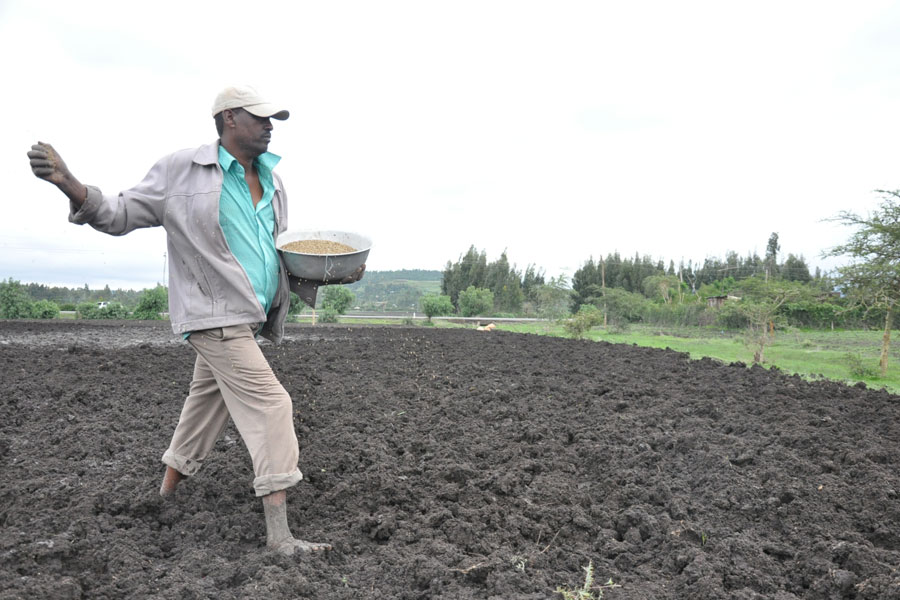
Agenda | Mar 19,2022
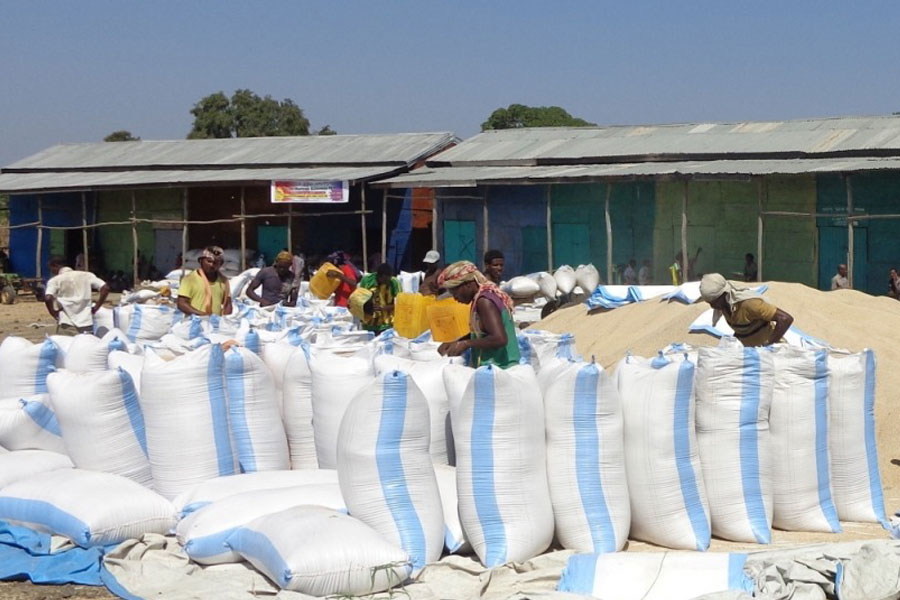
Agenda | May 13,2023

Viewpoints | Jan 15,2022
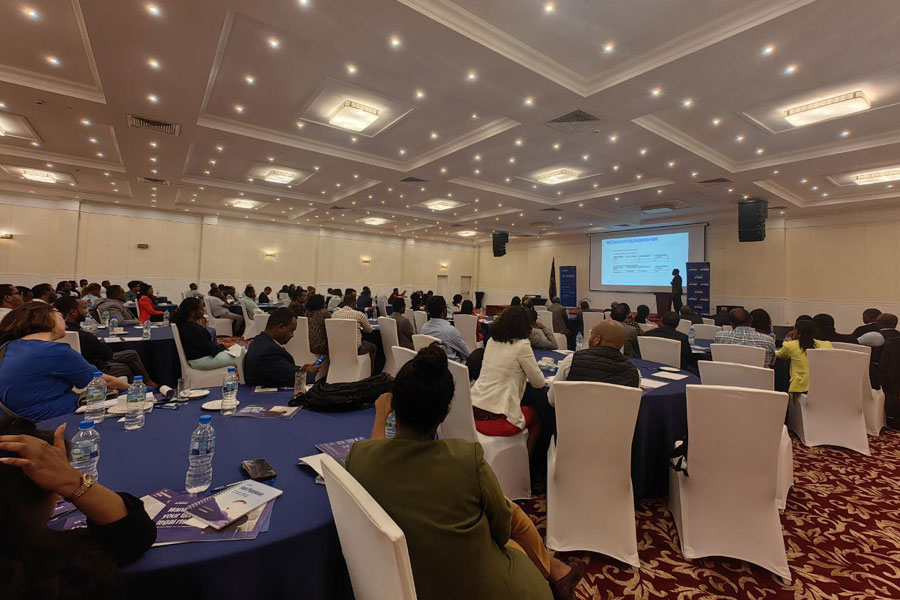
Fortune News | Oct 21,2023
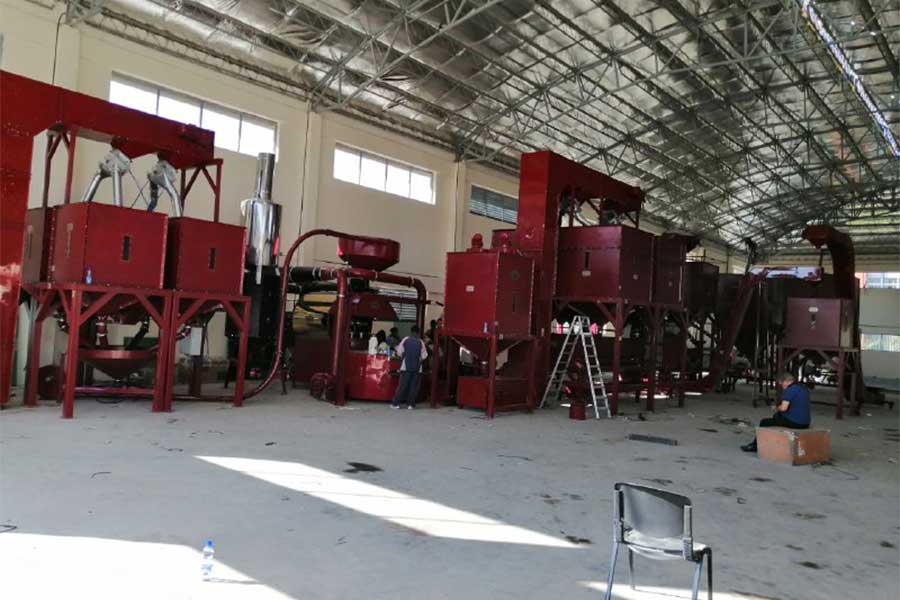
Fortune News | Dec 28,2019

Radar | Nov 23,2019

Viewpoints | Nov 25,2023

Dec 22 , 2024 . By TIZITA SHEWAFERAW
Charged with transforming colossal state-owned enterprises into modern and competitiv...

Aug 18 , 2024 . By AKSAH ITALO
Although predictable Yonas Zerihun's job in the ride-hailing service is not immune to...

Jul 28 , 2024 . By TIZITA SHEWAFERAW
Unhabitual, perhaps too many, Samuel Gebreyohannes, 38, used to occasionally enjoy a couple of beers at breakfast. However, he recently swit...

Jul 13 , 2024 . By AKSAH ITALO
Investors who rely on tractors, trucks, and field vehicles for commuting, transporting commodities, and f...

Oct 11 , 2025
Ladislas Farago, a roving Associated Press (AP) correspondent, arrived in Ethiopia in...

Oct 4 , 2025
Eyob Tekalegn (PhD) had been in the Governor's chair for only weeks when, on Septembe...

Sep 27 , 2025
Four years into an experiment with “shock therapy” in education, the national moo...

Sep 20 , 2025
Getachew Reda's return to the national stage was always going to stir attention. Once...